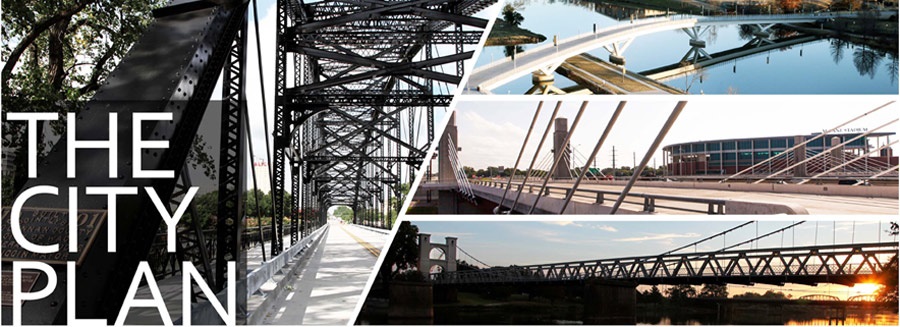City Plan

Guiding Principle of the City Plan, Waco Comprehensive Plan 2040
The guiding principle of the The City Plan is sustainable development. Sustainable development consists of development that meets the needs of the present without compromising the ability of future generations to meet their own needs.
The City Plan - Comprehensive Plan Part A(PDF, 16MB)
The City Plan - Comprehensive Plan Part B(PDF, 14MB)
Land Use Plan Designations within Waco Corporate Limits(PDF, 2MB)
Land Use Plan Designations - Waco Extraterritorial Jurisdiction(PDF, 1MB)
Permitted Zoning under Proposed Land Use Designations

Rural Residential
Allows for clustered or large lot low density residential development and agricultural uses with a maximum density of 1 unit/acre and a potential density bonus for cluster development Examples: Design elements would preserve rural character with a high percentage of open space. Zoning: R-E

Suburban Residential
Allows for large lot, single-family residential and cluster development with a maximum density of 3.5 units/acre and a potential density bonus for cluster development. Examples: Riverside, Twin Rivers Zoning: R-1A

Urban Residential
Single family residential, zero lot line, accessory dwelling unit and duplex development with accompanying uses such as churches, playgrounds, schools and civic buildings and limited office and commercial uses and with a maximum density of 10 units/acre (currently 14.5 units/acre) Examples: Development would look like many of our low density residential subdivisions. Zoning: R-1B, R-1C, R-2, O-3 subject to the following criteria:
- The O-3 is located on a street classified as a collector or higher or has access to two intersecting streets, one of which is classified as a collector or higher; or
- The O-3 zoning provides a buffer between a residential neighborhood or residential zoning and zoning districts that would allow more intensive commercial uses; or
- The O-3 zoning would bring an existing nonconforming commercial or office building(s) on a site into conformance with the zoning ordinance.

Medium Density Residential Office Flex
Duplexes, townhouses, condos and apartments with a maximum density of 25 units per acre Examples: Magnolia Villas, Cameron Heights and Palm Court Apartments Zoning: O-1, O-3, R-2, R-3A, R-3B, R-3C

Office Industrial Flex
A mixture of compatible office and industrial uses with limited high density residential and commercial ranging from large campus settings to the adaptive reuse of an existing structure and with access to arterial or collector roads as well as transit routes Examples: Offices, apartments, crafts and trades, the Baylor Research Innovation Collaborative (BRIC), and low impact manufacturing Zoning: O-1, O-2, O-3, C-1, C-2, M-1

Mixed Use Flex
Limited commercial, office and medium to high density residential developments Examples: Austin Avenue between 18th and 26th Streets, Elm Avenue and 15th and Colcord Zoning: R-3C, R-3D, R-3E, O-1, O-2, O-3, C-1, C-2, C-4 on Elm Avenue and Bridge Street only

Mixed Use Core
The most densely developed area of the city with a mixture of commercial, office and high density residential uses
Examples: Austin Avenue between 3rd and 18th Streets, Franklin Place, Praetorian Building Zoning: R-3D, R-3E, O-2, C-2, C-4

Industrial
General industrial or manufacturing uses
Examples: Texas Central Industrial Park, Cargill, Sanderson Farms Zoning: M-2

Institutional
Large educational and medical campuses
Examples: Baylor, TSTC, MCC, Providence, Baylor – Scott & White Zoning: O-2

Open Space
Parks, recreational areas, undeveloped flood zone risk areas (1% per year) and areas designated for preservation of existing agriculture, open space or natural areas Examples: Cameron Park, Lake Waco Wetlands, Cottonwood Creek Golf Course Zoning: R-E for large parcels; small, odd shaped parcels within the 100 year flood plain assume the zoning of adjacent properties with restrictions applied either through the creation of an overlay zoning district or through the addition of criteria for development within the floodplain to the text of the zoning ordinance.